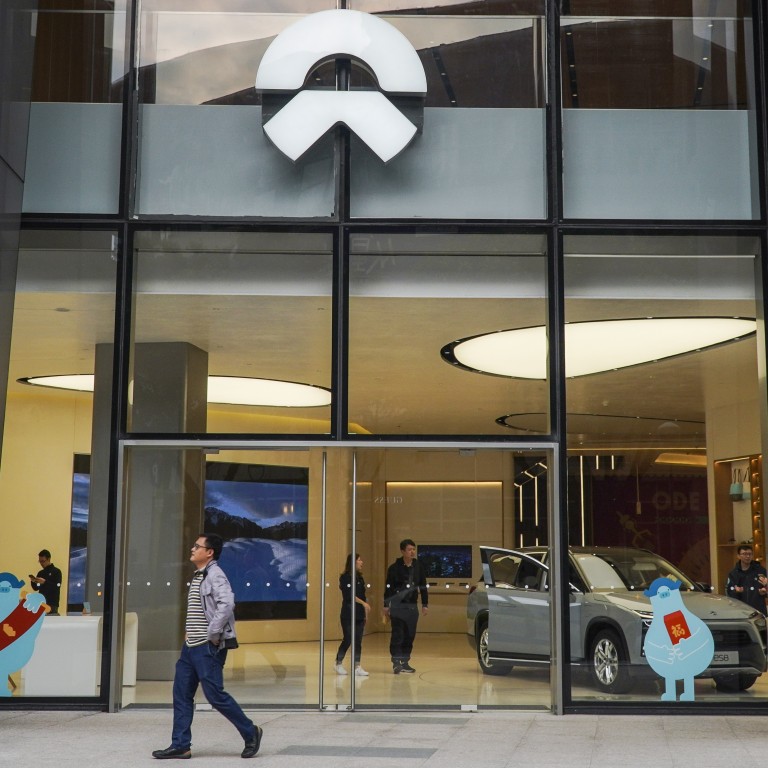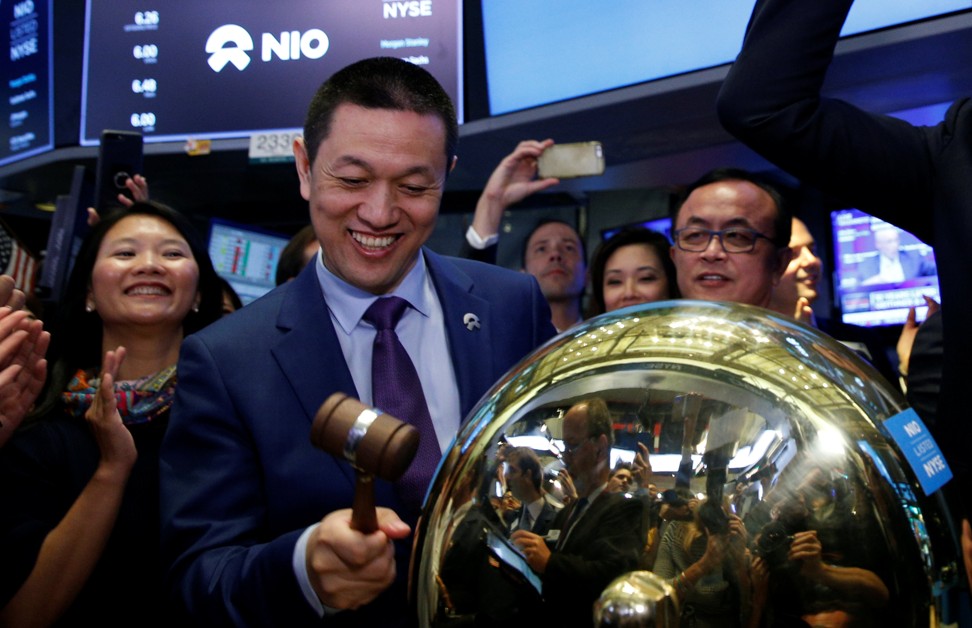
After US$5 billion in losses, China’s Tesla challenger Nio fights to survive
- Shanghai-based Nio is poised to report on Tuesday that it lost around US$4 million a day during the second quarter
It took Tesla about 15 years to rack up US$5 billion in losses. Nio, the company known as China’s Tesla, did it in four.
Cost overruns, weak sales, and major recalls have led Nio to plunge 74 per cent since its market value hit a record US$11.9 billion about a year ago. More broadly, the company’s reversal of fortune illustrates why concerns are mounting that China created an electric-vehicle (EV) bubble that may be about to burst.
“This year and the next, there’s going to be a lot of card-shuffling for these EV start-ups,” said Siyi Mi, an analyst at BloombergNEF. “Before, venture capital chased after them, but it’s not the case any more.”
Founder of Nio, China’s Tesla challenger, apologises after battery fires lead to recall of nearly 5,000 EVs
China has gradually scaled back subsidies for new-energy vehicles – all-electric, fuel-celled cars and plug-in hybrids – since 2017 to help the industry stand on its own two feet and avoid a bubble. That has undermined growth, prompting the likes of top Chinese electric carmaker BYD Co to warn recently that earnings will wane.
At Nio, pressure is building for it to raise more funds. The carmaker is seeking to reduce its workforce by 14 per cent to 7,500 by the end of this month, according to the company. Incidents involving batteries catching fire or spewing smoke forced Nio to recall about 4,800 vehicles – more than 20 per cent of all the cars it has ever sold. Second-quarter deliveries dropped from the preceding three-month period.

Even though Tencent and Li each ploughed US$100 million into Nio this month, the capital-intensive nature of the automobile industry means that “this much money won’t last long”, said Bill Russo, founder and chief executive at Automobility, a Shanghai-based car advisory firm.
Nio’s Li has played down his company’s challenges, saying in an interview in June that Nio’s stock rout was “no big deal” and that investors needed to understand that making new cars costs money.
But money is in short supply for the carmaker, which is now counting on receiving as much as 10 billion yuan in funding from an investment firm backed by the Beijing city government.
Tesla announces prices of made-in-China Model 3. At 328,000 yuan it’s 13 per cent cheaper than US imports
Another looming challenge for Nio is Tesla, which plans to start production in China later this year, allowing the US company to cut prices of its vehicles sold in the country.
“Nio didn’t position itself in the right place,” said Yale Zhang, founder and chief executive of AutoForesight. “I’m not optimistic about its future in the long run.”
For more insights into China tech, sign up for our tech newsletters, subscribe to our Inside China Tech podcast, and download the comprehensive 2019 China Internet Report. Also roam China Tech City, an award-winning interactive digital map at our sister site Abacus.

